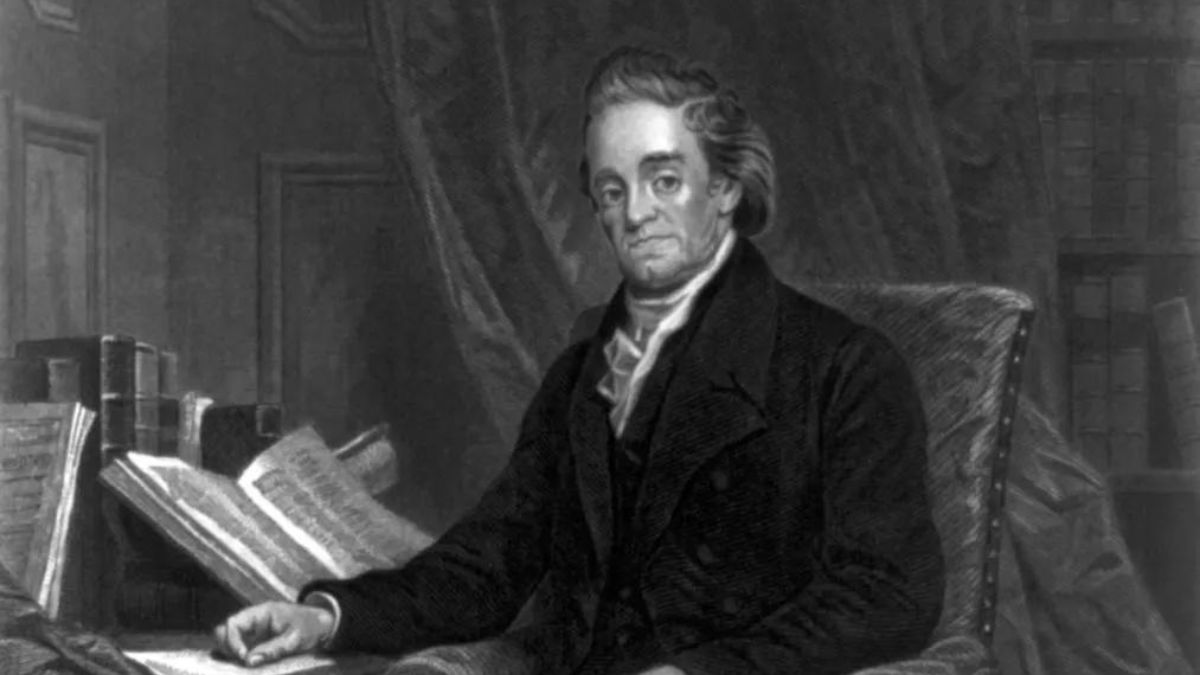

Noah Webster and the Power of Words
The publisher of America’s first spelling guide since its independence from Britian understood that words are worth fighting for.
05/28/24
John Stonestreet and Glenn Sunshine

On May 28, 1843, Noah Webster died in New Haven, Connecticut. Webster was a teacher and lawyer, an ardent supporter of the American Revolution, and a deeply committed Christian. In 1783, hoping to separate America from its cultural dependence on Europe, he published an American spelling guide that introduced most of the differences in spelling between American English and British English, many of which still exist today. He published a dictionary in 1806, which he expanded into the first full American dictionary in 1828.
Webster’s concern to create a uniquely American identity through the proper spelling and defining of words may seem odd in our image-driven culture, but that’s because we underestimate the importance and power of words. Words both reflect and shape culture in profound ways. For example, in his 1828 dictionary, Webster defined discernment as:
… also, the power or faculty of the mind, by which it distinguishes one thing from another, as truth from falsehood, virtue from vice; acuteness of judgment; power of perceiving differences of things or ideas, and their relations and tendencies.
And then, he added, “The errors of youth often proceed from the want of discernment.”
In contrast, today’s online Merriam-Webster dictionary defines discernment as “the ability to comprehend or grasp what is obscure” or as “an act of perceiving or discerning something.” Gone entirely is any sense of distinguishing between things, especially the role that moral sense plays in the process. The not-so-subtle shift reflects a cultural shift toward moral relativism.
Sometimes new meanings are merely reflected in our dictionaries. Other times, they are imposed. When they are, we get George Orwell’s Newspeak. For example, during the confirmation hearings for Supreme Court Justice Amy Coney Barrett, Democrats claimed her use of the term sexual orientation was offensive. It had not been considered offensive to that point but, in a blatantly political move the next day, Merriam-Webster changed the definition of the term in the dictionary to indicate that it now was offensive.
Sometimes, words change the world via new definitions, such as the forced use of masculine and feminine pronouns that are contrary to biological identity. Other times, the world is changed by new words, such as the invention of new pronouns for “nonbinary” people. These are, in fact, attempts to use language as a tool to control thought. Our words can impose ideas.
Before complying with the linguistic demands of others, we’d do well to remember these words of Confucius, “When words lose their meaning, people lose their freedom.” For Noah Webster, freedom required simplifying the spelling of words so that Americans could be rid of the artificial aristocratic conventions of British English.
Today, cultural battles are most often over the definitions of words. Faithfulness to what is true will require holding on to old, criticized definitions, even in the face of attempts to impose new, artificial meanings on words. Specifically, the battle lies over the meaning of words like love, truth, marriage, family, freedom, equality, dignity, human, even man and woman, male and female, mother and father. As Confucius said, our freedom rests in whether these words lose their meaning.
Words are important, even worth fighting for. As the ever-quotable G.K. Chesterton said:
What is the good of words if they aren’t important enough to quarrel over? Why do we choose one word more than another if there isn’t any difference between them? If you called a woman a chimpanzee instead of an angel, wouldn’t there be a quarrel about a word? If you’re not going to argue about words, what are you going to argue about? Are you going to convey your meaning to me by moving your ears? The Church and the heresies always used to fight about words, because they are the only thing worth fighting about.
This Breakpoint was co-authored by Dr. Glenn Sunshine. For more resources to live like a Christian in this cultural moment, go to breakpoint.org.
Have a Follow-up Question?
Up
Next

Related Content

© Copyright 2020, All Rights Reserved.













